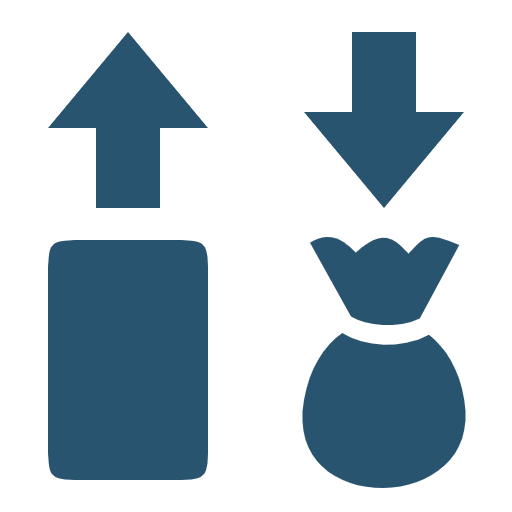


While prices are non-negotiable in most large stores, you may be able to haggle for a better price when buying, selling, or exchanging items with NPCs and smaller shops.
Your inventory contains your character's on-hand balance. Currency occupies a special inventory slot, has no weight, and can't be equipped.
You don't need to track how your currency is kept (cash, coin denominations, bank cards, etc.) You only need to keep track of your character's balance on-hand, which is the amount they have available to trade with. At certain points in the game, when the GM is summarizing the events of a period of time, they may add or deduct currency from your balance based on the outcome of those events, such as the price of fuel for travel.
Currency in the core mRPG 3.0 rule set is expressed in US Dollars, but other modules may use other currencies. Typically, custom currencies are directly proportional to the core currency values. Consult your GM if you're unsure about how much currency you have or if you can afford a certain purchase.

You haggle with another character to buy or sell an item at a negotiable price. Make a Trade (Diplomacy) check when you offer a price. Add your relationship to the target, as well as any knowledges relevant to the item being traded.
The target contests with a Common Sense (Wisdom) check if their relationship to you is positive, or a Sense Motive (Insight) check if it's zero or negative. They add any relevant knowledges to these checks as well.
If you use another strategy to convince the target, such as a lie or threat, the GM may ask you to add additional skill modifiers to the check.
| Success: | The target accepts your offer, and your relationship with them may increase if the GM sees fit. |
| Failure: | The target rejects your offer, but you may continue negotiating. The target may make a counter-offer. |
| Critical Failure: | The target rejects your offer, remains firm on their price, and you automatically fail any future Barter checks for the current item. Your relationship with them may decrease if the GM sees fit. |
Whoever is the first to offer a price makes the first Trade (Diplomacy) check.
If an NPC initiates this check or makes a counter-offer, you may consider their offer and decide for yourself how to respond. You may make the contested checks in order to get an idea of whether or not the offer is a good deal, but regardless of the outcome, you always have the final say in your character's decisions as far as trading.